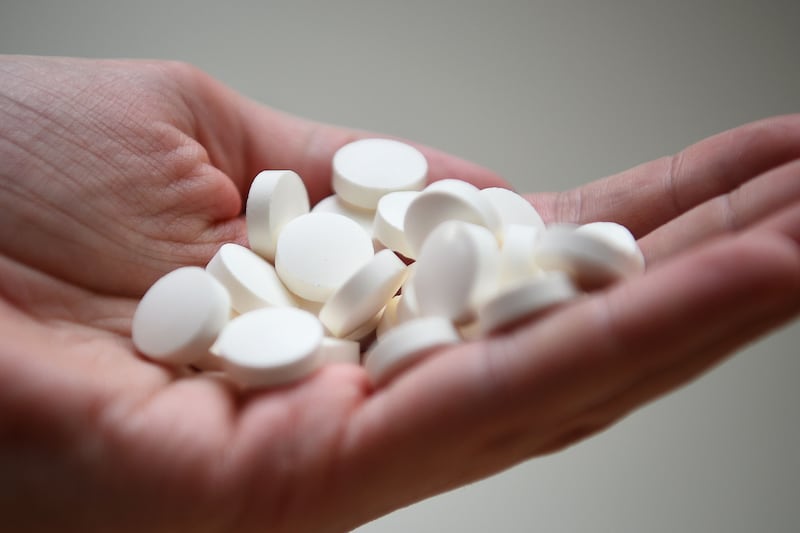A new test that proves if someone is genuinely allergic to penicillin could pave the way for millions more people to benefit from the drug, regarded as one of the most effective antibiotics available.
Around three million people in the UK are listed on their medical records as having suffered a reaction to penicillin, making it unsafe for them to take it to treat infections, ranging from a dental abscess to a throat infection or meningitis.
Yet the charity Antibiotic Research UK says that 95 per cent are not actually allergic.
Instead, many were labelled as such after developing borderline allergy-like symptoms — such as vomiting or a rash —when given the drug as an infant.
In many cases, studies show, the real cause of these symptoms was not the drug but a viral infection that was missed.
Even among those who do develop a genuine penicillin allergy early in life, about 80 per cent grow out of it within 10 years, as their immune system becomes less sensitive to it.
The new test is significant, because patients who cannot currently take penicillin for infections are instead treated with a different class of medication — broad-spectrum antibiotics, including doxycycline and minocycline.
But these are generally less effective: research shows that patients prescribed them are more likely to end up in intensive care than those on penicillin. And because these broad-spectrum antibiotics target a wider range of organisms, they increase the risk of antibiotic resistance, and are linked with higher rates of potentially deadly hospital-acquired infection, such as MRSA and Clostridium difficile.
Existing methods to ascertain if someone has a genuine penicillin allergy are protracted and only take place in specialist allergy clinics in the UK, supervised by highly trained staff.
Blood samples are taken to look for proteins (called immunoglobulin E) that indicate a penicillin allergy, followed by tests to see if exposure to the drug through the skin causes it to become inflamed.
In the final challenge, the patient swallows a small dose and doctors monitor them for any reaction for one to three hours afterwards.
But with only five full-time NHS allergy centres, testing millions of suspected penicillin allergies is not feasible.
A new US study shows cutting out the blood and skin tests and going straight to the oral challenge not only saves time and resources, but is just as effective at identifying genuine allergies. Researchers at Vanderbilt University in Nashville, Tennessee, recruited 382 adults with penicillin allergy, many of whom had experienced only a single reaction to the drug decades earlier in childhood.
They put half through the full range of tests and the rest went straight to taking a small dose before being monitored for any adverse reaction.
The results, published in JAMA Internal Medicine in July, showed that in both groups less than one per cent of volunteers reacted badly to penicillin — confirming they did have an allergy. The rest suffered no adverse reactions.
It’s claimed oral penicillin tests could be swiftly and cheaply introduced, administered by GPs or even pharmacists. Penicillin was one of the first life-saving antibiotics. It has benefited hundreds of millions of patients fighting infections, many of them children, since its discovery in 1928 by British scientist Dr Alexander Fleming.
Dr Neil Powell, a consultant antimicrobial pharmacist at the Royal Cornwall Hospitals NHS Trust, said some NHS hospitals are now starting to use oral testing by non-specialist staff to spot false penicillin allergies.
"This kind of testing should be done more widely, because allergy services do not have the capacity to see these huge numbers: it can take months for patients to be seen," he adds.
© Solo dmg media






